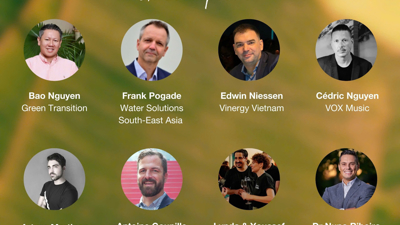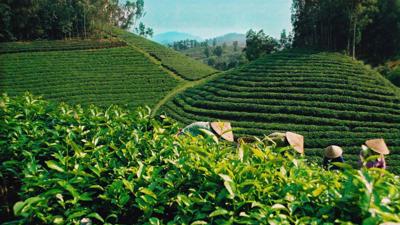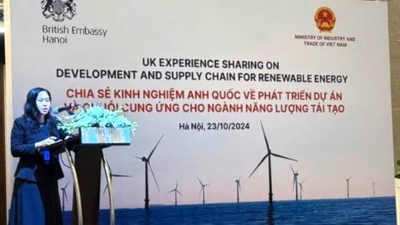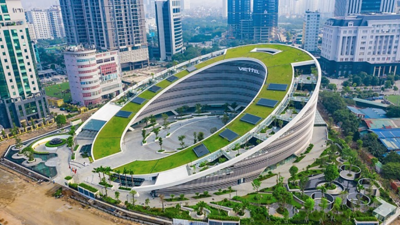BASF Vietnam Managing Director: Vietnam an important market in Asia
Mr. Erick Contreras, Managing Director of BASF Vietnam, tells VnEconomy about the company’s trajectory and its initiatives to support the government and businesses in pursuing policies to improve the quality of growth towards ‘greening’, emissions reductions, and sustainable development.
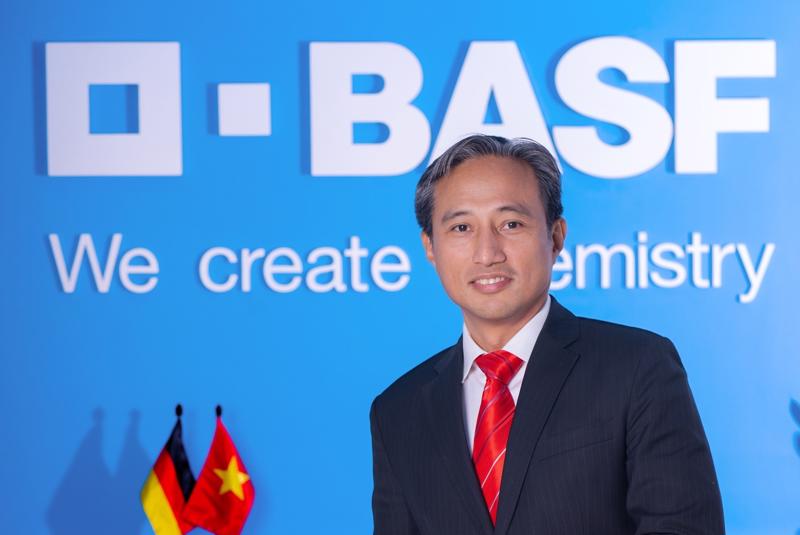
As a “go-to” investment destination for many foreign enterprises with immense development potential, Vietnam has been an important market for BASF in Asia over the past 30 years. On its upcoming development journey, BASF is committed to supporting Vietnam’s progress in “greening” its economy.
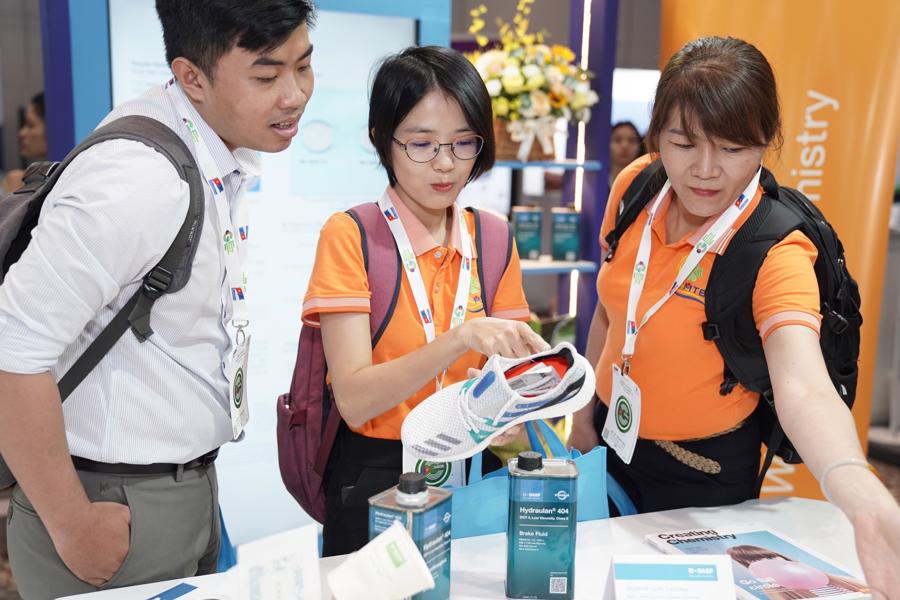
After establishing a representative office in Ho Chi Minh City in 1994, BASF has now been in Vietnam for 30 years. What remarkable milestones in business growth has it recorded in the country?
We began our journey in Vietnam by establishing the BASF Singapore representative office in Ho Chi Minh City in 1994, followed by a Hanoi branch office in 1996. This move was driven by Vietnam’s growing economic potential. In 2009, we solidified our presence with the incorporation of BASF Vietnam and the acquisition of strategic businesses, marking a significant milestone in our commitment to Vietnam’s development during its first phase of economic reform and integration.
During the 2010s, our operations experienced significant growth with the opening of key facilities. We opened the Polyurethane Technical Service Lab in 2014 and the AgSolutions Farm in the Mekong Delta’s Tien Giang province in 2018, providing essential support to Vietnam’s key industries such as footwear and agriculture. We also launched several social engagement programs focusing on education, like BASF Kids’ Lab and BASF Virtual Lab, as well as school renovations and building playgrounds, benefiting over 40,000 children around the country.
Since 2020, BASF Vietnam has been actively implementing its Sustainability Roadmap, focusing on Carbon Management and Circular Economy initiatives. This strategic approach aligns with our global sustainability strategy and Vietnam’s ambitious goal of achieving net-zero emissions by 2050. Through initiatives like the Sustainability Day series, we foster open dialogues and engage in meaningful discussions with our employees and stakeholders across the value chain from various sectors. These platforms explore new partnership opportunities and collaborative projects that contribute to sustainable development in Vietnam. Furthermore, our active participation in business associations such as EuroCham and the Vietnam Business Forum demonstrates our commitment to advocating for sustainable practices and policies in the country.
Amid the market volatility of recent years, we have maintained strong customer-centricity by staying closer to our customers and understanding their evolving needs and challenges. By offering innovative products and sustainable solutions, we have supported them in meeting stringent sustainability demands while achieving their business goals. For example, BASF’s Ultramid® engineering plastics can be used to replace 15 different steel parts to build cars, offering 30 per cent weight reduction, lower fuel consumption, and therefore reduced emissions. This helps our customers reduce their carbon emissions and reliance on limited fossil-based resources.
In parallel with these efforts, BASF has also invested in our talented workforce, who can combine their technical knowledge with digital skills. Through mentoring, training programs, internal job rotations, and project development, we have nurtured a skilled and knowledgeable team, ensuring that employees are empowered to drive positive changes and deliver value to our customers.
On this journey, how do you see the changes in Vietnam’s economy in pursuing the policy of strengthening growth quality and gearing towards green development, reducing carbon footprints and boosting sustainability?
Vietnam is an important market for BASF in Asia, presenting immense growth potential, fueled by strategic trade agreements like the EU-Vietnam Free Trade Agreement (EUVFTA) and the Regional Comprehensive Economic Partnership (RCEP), which provide enhanced market access to important markets like the EU and the US. However, these markets also expose challenges in meeting stringent quality, health, safety, and environmental standards.
The government’s commitment to sustainable development, evidenced by its pledge at COP26 to achieve net-zero emissions by 2050, signals an impactful shift. The amended Law on Environmental Protection of 2020 and the National Power Development Plan for 2021-2030 are key enablers that highlight Vietnam’s dedication to cleaner energy sources and stricter environmental regulations. Furthermore, Vietnam has actively adapted best practices and expertise from more mature markets. This approach helps promote “greener” technologies, improve quality of life, and support businesses with greater ease.
In the business community there is a noticeable shift towards the adoption of innovative and sustainable solutions, particularly among small and medium-sized enterprises (SMEs). Companies have increasingly embedded environmental, social, governance (ESG) principles into their operations, promoting responsible production and sustainable growth. Furthermore, proactive businesses like BASF play a crucial role in this transition. By actively sharing expertise and fostering collaborative partnerships, we drive collective progress towards sustainability goals.
Do you have any recommendations for the government in Vietnam pursuing and implementing its COP26 commitments? What are the key priorities for success?
To effectively pursue and implement its COP26 commitments, the Vietnamese Government must prioritize key areas for action.
Firstly, there is a need to establish a clear and consistent legal framework with policies that promote green growth. This is particularly important for European enterprises and multinational companies pursuing net-zero commitments. Additionally, the strict enforcement of existing environmental policies for large local companies is necessary. Simultaneously, providing support to and transition periods for SMEs to adapt to these regulations is essential, to ensure a smooth and successful transition towards sustainable practices. Collaborating with business associations such as EuroCham and the Vietnam Business Forum can also provide valuable insights and expertise to shape effective regulations.
Secondly, capability-building and education are key enablers. Establishing regular exchanges and dialogues among government bodies, local business forums, and foreign associations can leverage the wealth of experience and strengths. As a leading chemical company and sustainability pioneer, BASF not only provides innovative products and sustainable solutions but also offers expertise and best practices sharing across various industries. By integrating the efforts of businesses and the government’s policies, we can create a collaborative environment that accelerates Vietnam’s progress towards its net-zero commitments and fosters sustainable development.
During the ‘greening’ of Vietnam’s economy, does BASF collaborate with and support the government and the country in implementing those priorities?
BASF is committed to supporting the Vietnamese Government and our customers by offering innovative products and sustainable solutions tailored to address pressing sustainability challenges.
For farmers, we provide innovative products and digital solutions that enhance plant health, increase productivity, and improve profitability in agricultural practices for major crops like rice, fruit, and vegetables. Our battery materials for e-vehicles and coating solutions provide long-lasting protection from extreme weathering impacts for wind turbines, helping the country accelerate e-mobility and renewable energy development, while our polyurethane is key in the comfort, design, and safety of footwear products. We also offer additives that improve the durability and recyclability of plastics, addressing the challenge of plastic waste management and promoting a circular economy. BASF utilizes renewable ingredients, such as Vietnamese rambutan, to create high-quality beauty care products that have a positive impact on both the workforce and the environment.
As a co-founding member of the Alliance to End Plastic Waste (AEPW), we support the “Clean City Green Vietnam” project, focusing on scalable solutions for reducing unmanaged waste and unlocking the value of waste materials. BASF is also a member of Together for Sustainability (TfS), driving Corporate Social Responsibility (CSR) standards across the chemical industry. We are dedicated to reducing greenhouse gas emissions, particularly Scope 3 emissions, and have launched the product carbon footprint (PCF) guideline to help industry players identify, track, and mitigate emissions. This is especially meaningful for Vietnamese companies exporting to EU markets with stringent standards on sustainability.
By strengthening partnerships and dialogue with business associations such as EuroCham’s Green Growth Committee and the Vietnam Business Forum, we contribute business ideas to policymakers, accelerate sustainability and the circular economy, and drive collective action towards a more sustainable future for Vietnam.


